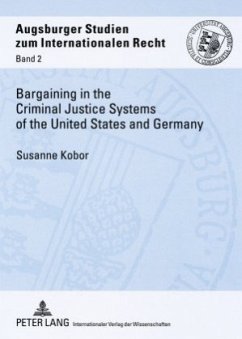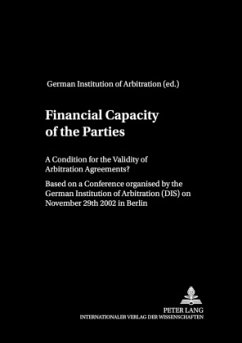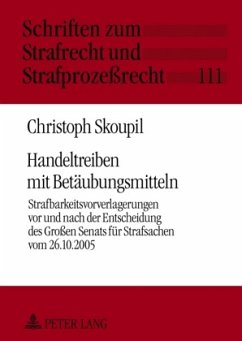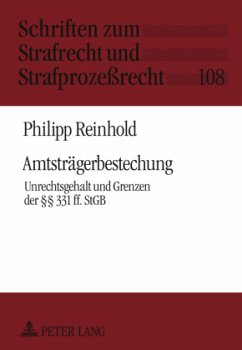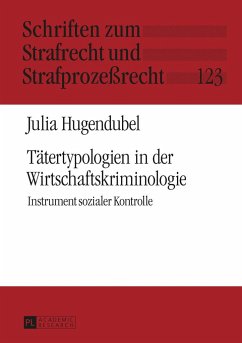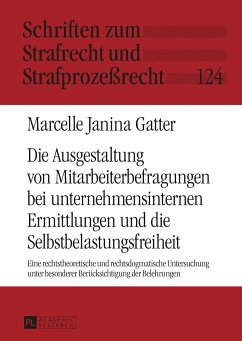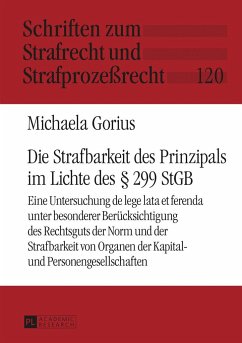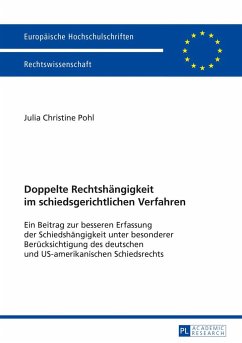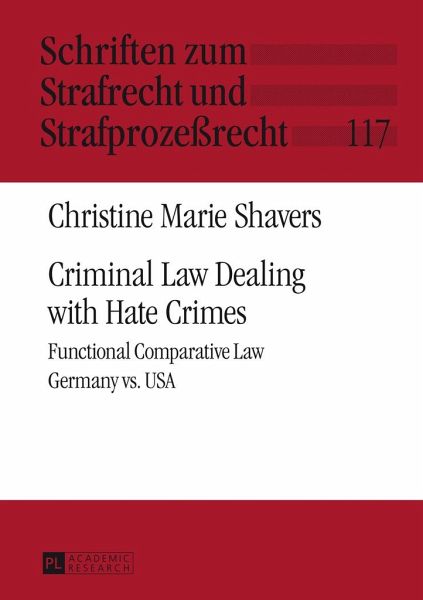
Criminal Law Dealing with Hate Crimes
Functional Comparative Law- Germany vs. USA
Versandkostenfrei!
Versandfertig in 6-10 Tagen
101,00 €
inkl. MwSt.

PAYBACK Punkte
0 °P sammeln!
This study aims at providing a contribution to the current issue of hate crime. It analyzes the possibilities which are served by the German and the US American law to penalize bias-motivated crimes, while considering the historical and social background of both societies. It is questioned which legal goods are harmed by the committal of hate crime and whether the German penal law is suitable to address the wrong of hate crime and whether it is capable of properly punishing this sort of crime in respect to the blameworthiness of the offender. By applying the functional method of law comparison...
This study aims at providing a contribution to the current issue of hate crime. It analyzes the possibilities which are served by the German and the US American law to penalize bias-motivated crimes, while considering the historical and social background of both societies. It is questioned which legal goods are harmed by the committal of hate crime and whether the German penal law is suitable to address the wrong of hate crime and whether it is capable of properly punishing this sort of crime in respect to the blameworthiness of the offender. By applying the functional method of law comparison, understandings regarding the handlings of hate crimes in the USA and in Germany are exploited and, as a result, possible solutions for weaknesses of the prevailing law are offered.





